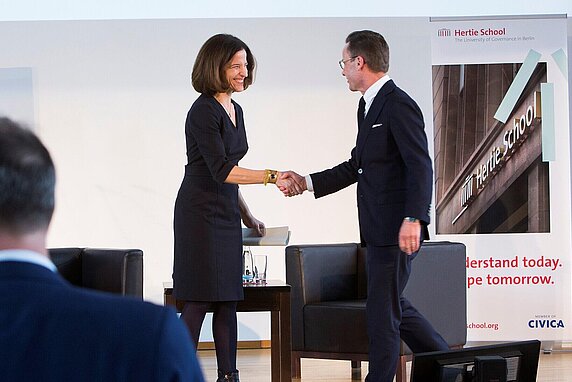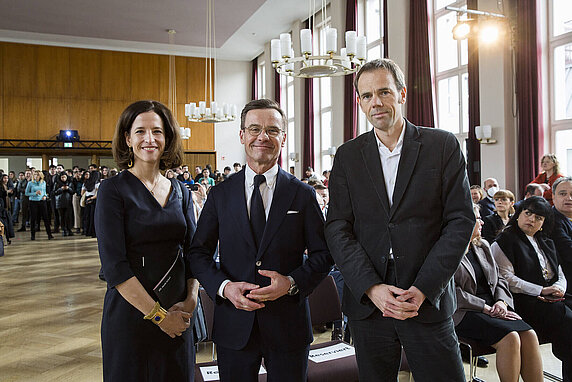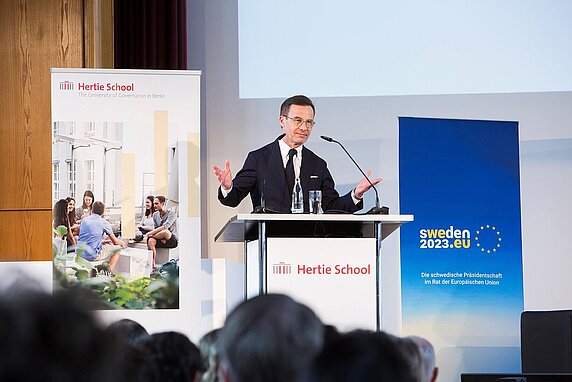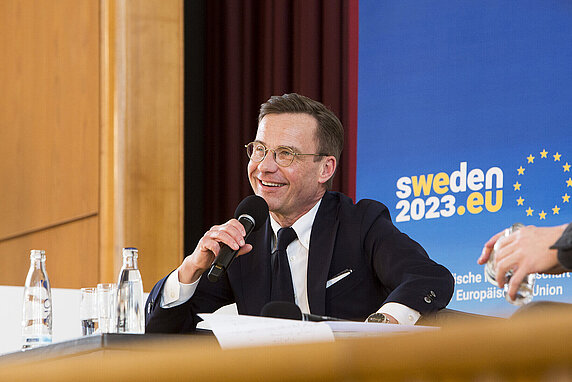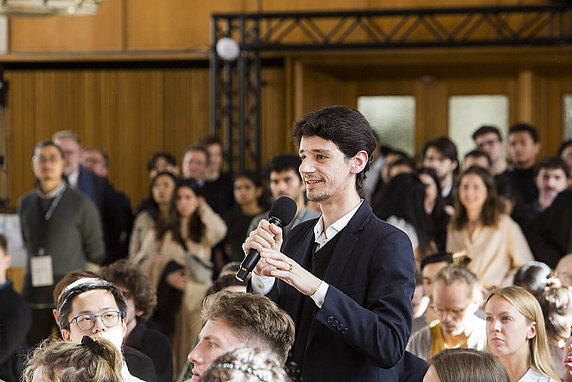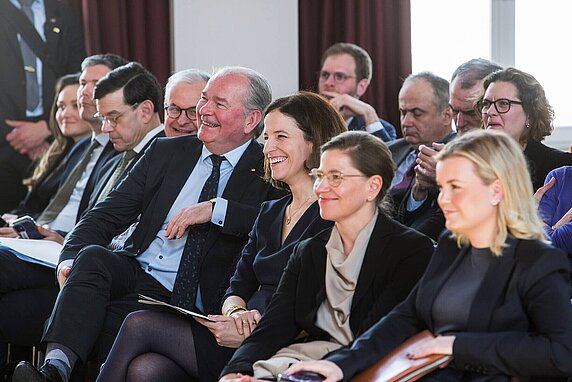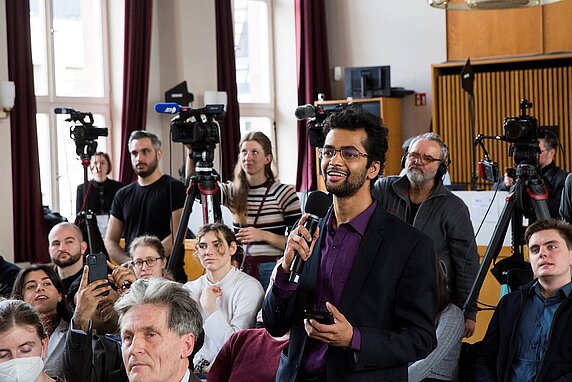Swedish Prime Minister Ulf Kristersson holds a keynote address at the Hertie School.
On 15 March, before his visit with German Chancellor Olaf Scholz, Swedish Prime Minister Ulf Kristersson visited the Hertie School to discuss his vision of Europe before an auditorium filled with Hertie faculty and students, European ambassadors, and European Union officials. As Sweden currently holds the Presidency of the Council of the EU, the country plays a key role in leading the Union's work in the months to come.
Hertie School President Cornelia Woll opened the event. “I could not imagine a better time than ours to discuss the values that bring us together, the responsibilities we share, and the challenges we have to address urgently in mutual respect and cooperation,” she said. “One tends to say that Europe grows in crisis. I place all my hopes in this wisdom, because we’ve certainly been dealt a fair share in recent months.”
Military support for Ukraine and EU enlargement
Kristersson began his keynote by highlighting the importance of Sweden and Germany’s cooperation on military support for Ukraine. He cited the two countries’ recent initiative to send Ukraine advanced air defence equipment, saying that “if we want our values to be prevail, we must help Ukraine to prevail, and we are helping them to prevail.” According to Kristersson, Russia’s war of aggression had put EU enlargement back on the agenda. “Although integrating additional countries into the EU will be difficult, the alternative is to give free rein to Russian influence,” he said. “The objective should be clear: to continue giving strong support to candidate countries in their reform efforts. When Ukraine and other candidate countries are ready to join the EU, we must be prepared to welcome them.”
From “firefighting” to “engineering”
In Kristersson’s view, the last two decades in Europe were shaped by “firefighting” in response to various crises, including the Eurozone crisis, the refugee crisis, the COVID-19 pandemic, and now Russia’s war against Ukraine. Yet he said that “the Union must be more than a world-class trouble-shooter.” To move more toward “engineering”, Kristersson argued that Europe must take more responsibility for its own security and act as a complement to NATO, though it is not a replacement. The Prime Minister also underlined the importance of building the foundations of a more competitive European economy, pointing out that “there is no such thing as European autonomy without European competitiveness.” To improve the competitiveness of European countries, he argued for the strengthening of the single European market and its digital services.
For Kristersson, the EU’s transatlantic link with the United States is also key to “engineering” for the future. In his view, “building on this bridge is perhaps our most important geopolitical task to safeguard fundamental European and Western values.” While the Prime Minister warned of overreliance on individual suppliers of energy and critical raw materials, he also said that the EU can never become self-sufficient. “The EU needs a strong trade agenda that allows us to diversify our supply chains and access world markets together with like-minded partners,” he claimed.
NATO membership and bringing the EU closer to citizens
Following his address, Kristersson answered questions from moderator Luuk van Middelaar, Professor of EU Law, and the audience. Asked about Sweden’s decision to join NATO, he referred to Russia’s invasion of Ukraine and said that “this is a meeting with realpolitik. We have to face the world as it is, and we have to deal with countries that don’t always do the things we want them to do.” Related to Sweden’s Presidency of the Council of the EU, Kristersson was asked how the EU could be brought closer to its citizens. He replied that “most people want a legitimate system, and they want results. If you don’t solve problems, you become a problem.”
Watch our live recording of the discussion with Prime Minister Kristersson below.

